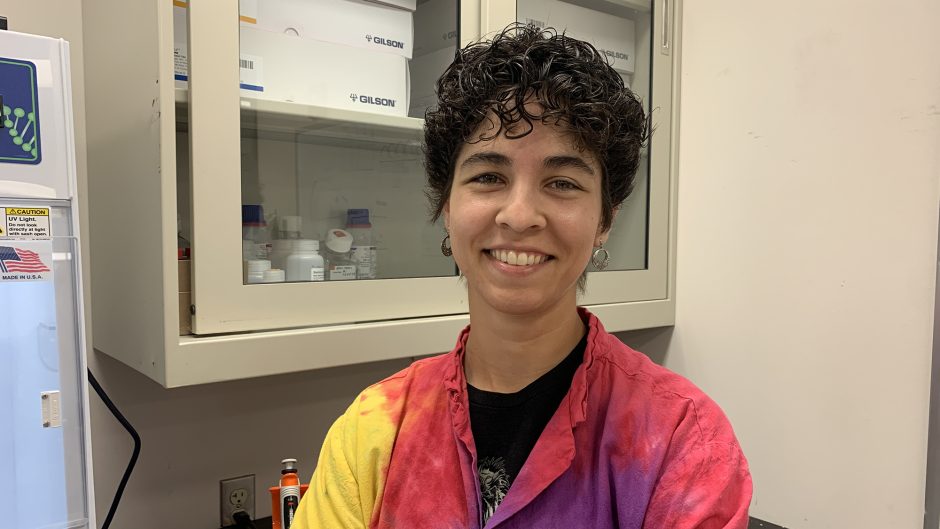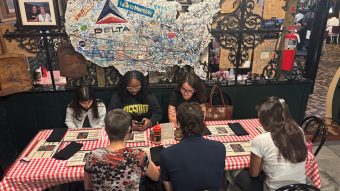
Aug. 14, 2023
Contact: Deidra Ashley, ashleyde@missouri.edu
Rosalie Ierardi is a veterinary pathologist and doctoral student from central Illinois. This summer, she led a team that discovered longhorned ticks in two Missouri counties. The ticks, which have already caused the loss of millions of dollars in agricultural revenue to livestock producers worldwide, indicate a potential looming problem for cattle health in mid-Missouri.
Read on for a Q&A with Ierardi about her summer research experience.
Tell us about your research.
My research is part of my Ph.D. dissertation and focuses on a disease called bovine anaplasmosis. It affects cattle and is transmitted by certain ticks.
Symptoms of the disease include fever, weight loss, pregnancy loss, and even death. In addition to its negative effects on the cattle, the disease has serious economic consequences for cattle producers.
To better understand tick populations — and their impacts on cattle health — we spent the summer collecting ticks from pastures on four different beef cattle farms throughout Missouri.
Why is this research important to you?
As a veterinarian, I care deeply about animal health. The better we understand how diseases are transmitted, the better equipped we are to keep our animals healthier. Not only does this help the cattle have a better life, it also helps them to be more productive as meat- and milk-producing animals, which means a lot to the farmers whose income depends on it. Ticks and tick-borne diseases also have a huge impact on human health, so everything we can do to better understand ticks helps improve our knowledge of how to protect ourselves.
What’s the biggest discovery you’ve made in your research?
Something I didn’t quite expect was our discovery of the longhorned tick, Haemaphysalis longicornis, in two new counties of Missouri. This invasive species is rapidly becoming established in the United States since it was first recognized in 2017. Monitoring where it’s found helps people to be more aware of the need to protect themselves and their animals.
What did you enjoy most about your summer research project?
Working with the students! Teaching and learning from our student research assistants have been the highlight of my last two summers. Their enthusiasm and questions make every day feel fresh, and we always find something to laugh about.
Why is hands-on learning so important?
There’s no substitute for hands-on experience. Research is completely different from classroom labs, where there is a “correct” answer. You really are finding answers to the unknown, and that makes it exciting. It’s very empowering and also humbling at the same time.
Is there anyone you’d like to thank?
I want to thank my Ph.D. mentor, Dr. Ram Raghavan, and the director of the Veterinary Medical Diagnostic Laboratory, Dr. Shuping Zhang. They have both believed in me and have patiently supported me as I juggle multiple responsibilities as a Ph.D. candidate and a clinical instructor. Also, I want to give a huge thank you to the student research assistants who work with me during the summers — I couldn’t do this project without them!
Meet more summer 2023 student researchers


